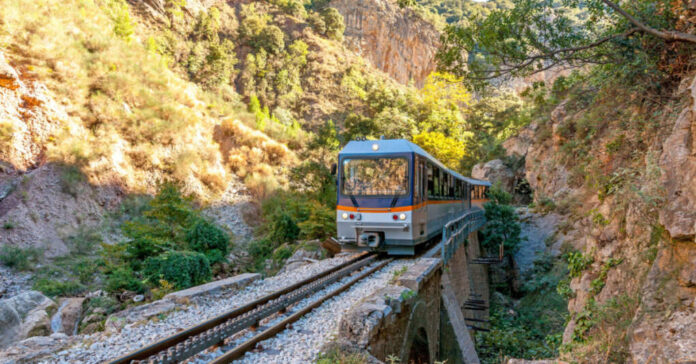
The anger in Greece started boiling over on March 2nd. With the release of audio tapes surrounding the recent train accident fueling the outrage, many want to know how this was even allowed to happen, and where to truly place the blame.
February 28th marked the end of a holiday weekend, and many of the 350 or so people on the commuter train were young people heading home. Suddenly they collided head-on with a freight engine heading the opposite way on the same tracks. According to the tapes, this accident was caused by at least one train conductor being told to ignore redlight warnings.
“Proceed through red traffic light exit until traffic light entry of Neon Poron,” is what the station master proclaimed to the train, overriding their alerts.
“Vasilis, am I good to go?” said the train driver, with the train master saying “Go, go.”
A secondary tape shows the station master clarifying the order.
Shall I turn it now?” asks the employee.
“No, no, because 1564 is on this route,” the station master replies.
This evidence supports the “mass deaths through negligence” and “causing grievous bodily harm through negligence” charges that the station master is now facing. When he was arrested, he immediately began blaming a technical fault. Later he admitted to “making a mistake.” No matter how he wants to blame it, he is clearly responsible for those trains and the cargo on there. Especially those lives.
Rightfully, protestors took to the streets outside the central Athens headquarters of the Greek rail company Hellenic Train. Organized by students and work unions, they are tired of the lack of answers as to not only why this happened, but how it was even possible. In 2023 with so many fail-safes, this should not be occurring at all, and yet here we are. On March 1st the protests turned violent where demonstrators clashed with overzealous police, yet the 2nd was incredibly calm and peaceful.
Dimitris Bournazis spoke with the Greek media earlier on the 2nd about the lack of information authorities have provided him on his father or brother. Despite three calls to the Hellenic Train, he has received no response. Talking with the Greek broadcaster SKAI it’s clear to see how upset he rightfully is.
“The prime minister and the health minister came here yesterday. Why? To do what? To explain what? Where are they today? No one has given us any information, no one knows how many people really were inside. We cannot only blame one person for this because of a mistake. Where is everyone else now? They all await the election to speak!!”
Passenger Andreas Alikaniotis spoke with ERT about the accident from his position in the second car of the train during the collision, as well as the 10 people he helped escape the wreckage. “What we did was to break the glass, which was already cracked, and to throw the luggage outside the carriage, so we can land somewhere soft. We jumped 3 to 4 meters. First, the more seriously injured and then us with lighter injuries…There was panic.”
For the people who survived the wreck as well as those still awaiting word on their loved ones, their frustration has transformed from pain into rage. Given the horrific track record Greece’s railway has among other countries in Europe, they have had the highest fatality per million-kilometer rate from 2018 to 2020.
In response to the accident, the Greek federation of rail workers voted unanimously to launch a 24-hour strike starting on the 2nd to shed a light on the horrific conditions workers were forced to endure. Much the same, the Greek metro undertook its own strike, saying “There are no words to describe such tragedy.”
This kind of tragedy is preventable, and as the audio clips show, quite possibly very intentional. Changes need to be coming to the rail systems in Greece, and with our own recent train incidents, the US should be reevaluating theirs as well.











